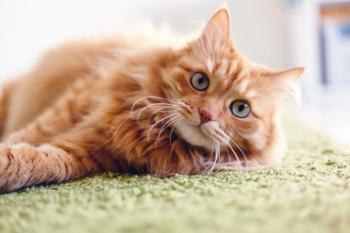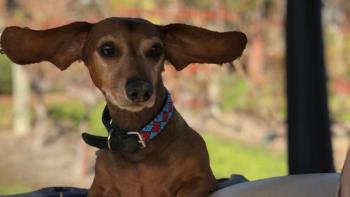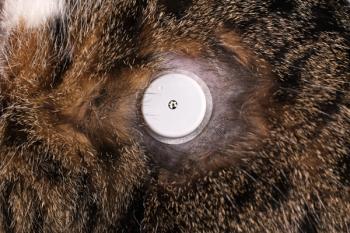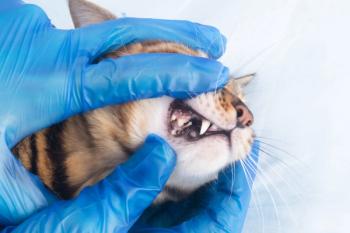
Have You Heard? Finding the right cosyntropin dose in cats (script)
When trying to identify mild degrees of adrenocortical insufficiency or critical illness-related corticosteroid insufficiency, low-dose ACTH stimulation testing is necessary to achieve an accurate diagnosis. But what dose is best in cats?
When trying to identify mild degrees of adrenocortical insufficiency or critical illness-related corticosteroid insufficiency (inadequate cortisol production in response to increased demand during critical illness), low-dose ACTH stimulation testing is necessary to achieve an accurate diagnosis. But what dose is best in cats? The standard ACTH stimulation dose of cosyntropin is 125 μg per cat given intravenously, but this dose may not have adequate sensitivity for detecting critical illness-related corticosteroid insufficiency.
A recent report took the first steps in evaluating the lowest feline dose of cosyntropin, based on body weight, that produces maximal cortisol and aldosterone secretion equivalent to that achieved with the standard dose of 125 μg per cat. The researchers also set out to establish the ideal sampling time that corresponds with peak stimulation for the low-dose cosyntropin dose administered.
Glowimages/Getty Images
Young, healthy, intact male cats were used, and each cat received an implanted vascular access port to allow minimal restraint and handling throughout the study and minimize stress-induced cortisol secretion. The cats were given five doses of cosyntropin and saline solution intravenously over the course of the study, with a two-week washout period between each treatment.
Baseline serum cortisol and aldosterone concentrations were measured, and blood sample testing every 15 minutes for 90 minutes followed each dose of cosyntropin or saline. The low doses of cosyntropin evaluated were 1, 2.5, 5, and 10 μg/kg, with 125 μg per cat and saline representing the positive and negative control groups, respectively.
All but the lowest dose of cosyntropin led to peak serum cortisol and aldosterone concentrations comparable to that achieved with the standard dose. The lower the cosyntropin dose, the earlier the peaks occurred. As expected, no change was observed after saline administration, which suggested that stress was minimized. The lowest cosyntropin dose that resulted in an overlap of maximal cortisol and aldosterone response was 5 μg/kg and occurred at 60 or 75 minutes after intravenous cosyntropin administration.
As noted by the researchers, since sex may influence adrenocortical responsiveness, this selection of healthy intact male study participants may have affected the results. And since the cosyntropin was given intravenously, responses to intramuscular administration would likely produce significantly lower peak values. Also, responses may differ in populations of older or ill individuals, and these findings suggest a benefit to further evaluation in various cat populations and that applying these results to critically ill cats should be done with caution. However, low-dose ACTH stimulation testing using 5 μg/kg cosyntropin given intravenously followed by blood sample collection at 60 to 75 minutes in healthy cats produced results equivalent to those produced by the traditional 125 μg per cat dose.
DeClue AE, Marin LG, Behrend EN, et al. Cortisol and aldosterone response to various doses of cosyntropin in healthy cats. J Am Vet Med Assoc 2011;238(2):176-182.
Newsletter
From exam room tips to practice management insights, get trusted veterinary news delivered straight to your inbox—subscribe to dvm360.






